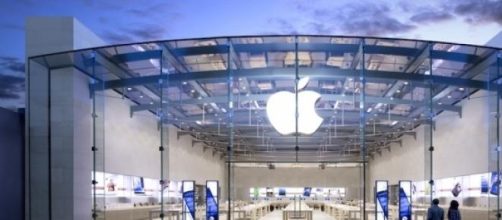Apple keeps redefining the concept of success in the consumer electronics space. After unexpectedly pulling ahead of rival Samsung in the last quarter of 2014, to regain the world's number one position, Apple has now stunned the market with a new set of records. The company sold 61.2 million iPhones in the first three months of 2015, a record for the January-March quarter that smashed analysts' expectations, given how weak the post-holidays period is for the consumer electronics market.
The strong performance of the iPhone 6 and 6 Plus - larger screen models introduced back in September 2014 - drove revenues and profits also to an all time high in this quarter: $58 billion in revenue and $13.6 billion in net income.
Apple not only sold a lot more iPhones than it had in the same period of last year, but also made more money on average with each sale. The brand is achieving the rare combination of selling pricier gadgets and still gaining market share from cheaper competitors, in a world that is mostly #TeamAndroid. How is this possible?
"iPhone sales more than doubled in Korea, Singapore, Taiwan and Vietnam, and were up 80% or more in several other markets including Canada, Mexico, Germany and Turkey," Apple chief financial officer Luca Maestri said, in the conference call that followed the earnings release. But the real secret is China: Apple now makes more money in China than in all of Europe, and was able to increase sales even further after the strong holiday quarter.
It's the kind of hell-freezing-over situation that no pundit or analyst expected a few quarters ago, when Apple was being criticised for not being able to break through the humongous Chinese market.
"I was not expecting them to sell so many iPhones, it's pretty impressive and more than most people expected," Van L. Baker, research vice-president and lead Apple analyst at Gartner, tells Blasting News. "It's obviously an indication that the iPhone 6 and 6 Plus are very competitive. They said only about 20% of the iPhone active user base has upgraded, which gives a lot of ground to continue to grow the market," he added.
Apple CEO Tim Cook further indicated that they "continue to see a visible percentage of first time buyers, particularly in emerging markets." More important than that: "we're seeing a higher rate of switchers than we've experienced in previous iPhone cycles."
Beating Samsung
The irony lies here: Samsung surpassed Apple in 2012 to become the world's number one smartphone vendor, making a splash precisely with large screen phones and dominating Asian markets.
When Apple released the iPhone 6 and iPhone 6 Plus, a lot of consumers switched from their Androids, as Samsung faced fierce competition from much cheaper vendors like Xiaomi. Now, the South-Korean brand is battling a steep fall in its mobile division profits and is trying to get its modjo back with two new flagship phones, Galaxy S6 and Galaxy S6 Edge, which have a lot of iPhone-like features, like the metal body and no USB or microSD slots.
"Apple doesn't have a really strong competitor in the market on iPhone right now," Van L. Baker states. "Although the Galaxy S6 and Edge are both getting extraordinarily positive reviews, we have to wait and see if they translate into strong sales." The analyst believes Samsung can regain its position if it drops the prices, but that's not the reality yet.
"Right now, they seem to want to sell a product that has a parity with the iPhone 6 and 6 Plus." Either way, he concludes, both companies will continue to share the profits, "because very few companies are making any money in the smartphone segment other that Samsung and Apple."
Cash cow
The striking point is that Apple is making more money than anyone else - Samsung predicts a profit of $5.4 billion in the March quarter, almost 3 times less than Apple's net income. The iPhone is a bigger cash cow now, as the average selling price increased to $659 (£434), well above the $597 (£393) of March last year. Why? Due to a trick Apple pulled with the new models: you can now buy a 16GB, a 64GB or a 128GB iPhone 6, but not a 32GB model like in the past. Because 16GB is too little, consumers prefer to pay an additional £80 and get the 64GB version, for £619.
No wonder Apple is now sitting in a cash pile of $194 billion (£128 billion), an unthinkable sum that surpasses all of its competitors.
Vala Afshar, marketing chief at security firm Extreme Networks, noted on his Twitter account that Apple could buy Uber, Tesla, Twitter, Netflix, Dropbox, SnapChat, Airbnb and SpaceX and "still have $30 billion left." Or as USA Today put it, Apple has more money that Google and Microsoft... combined.

